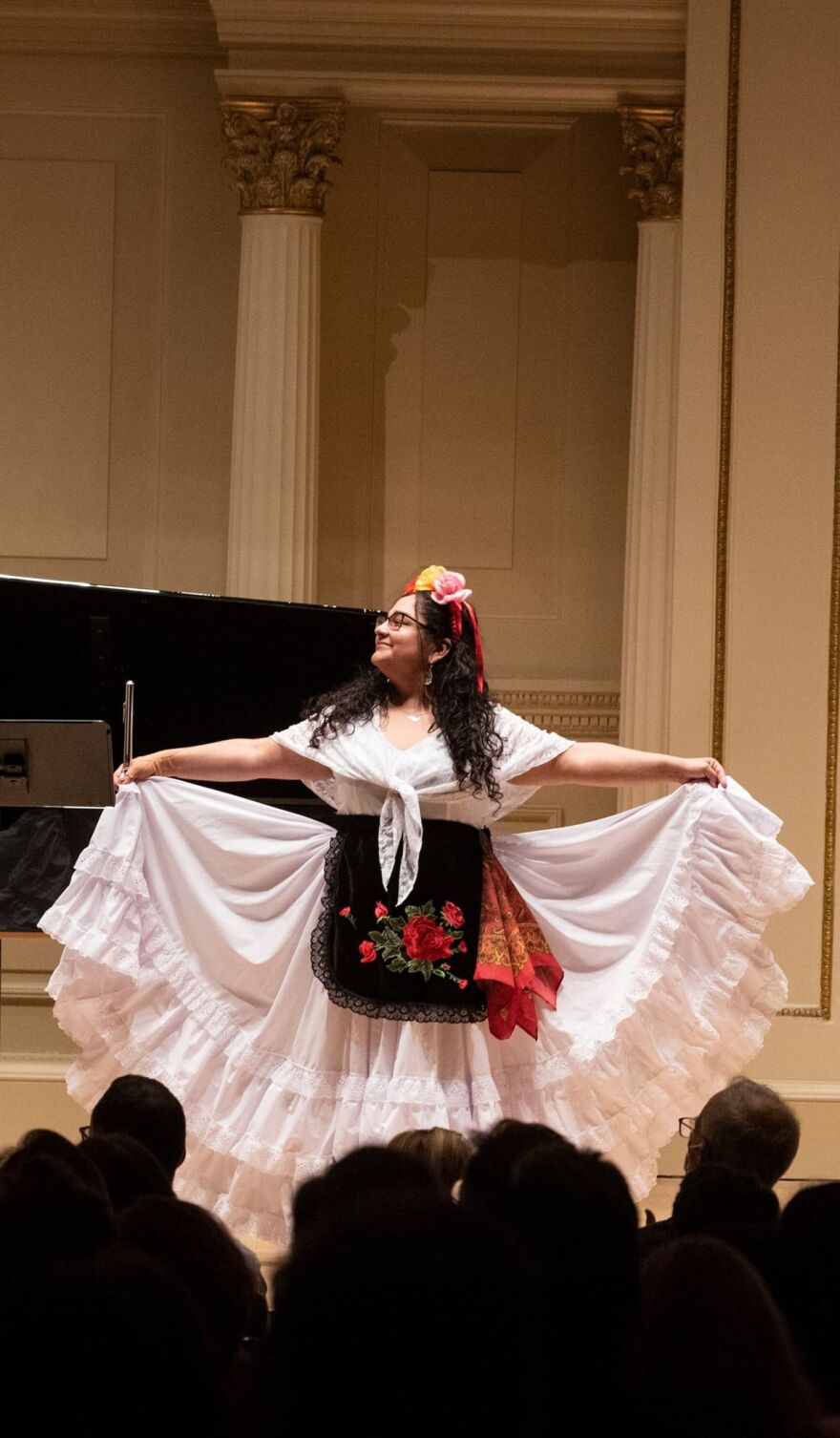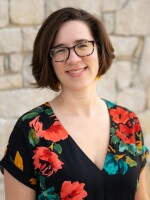This story was first published in Classical KC's "Take Note" newsletter. You can sign up to receive stories like this in your inbox the first Wednesday of every month.
Native American people have contributed to the realm of classical music for centuries, and composers have incorporated Native American music styles — sometimes thoughtfully, sometimes not — in all manner of ensemble. Native musicians not only sang and played and danced their own traditions, but they adopted elements of European colonizers’ music and wove them into their own practice.
Native American music is multifaceted and includes diverse styles; there are more than 500 recognized tribes in the United States, and more than 100 languages spoken. The land that the Kansas City region occupies was once the home of the Osage, Kaw, Otoe-Missouria, Wyandot, Shawnee, Delaware (Lenape), Munsee, Potawatomi, Sac and Fox, and Kickapoo (Kiikaapoi) people.

There are opportunities to explore this music in Kansas City, if you know where to look. In 2000, Louis Ballard, considered the father of Native American composition, was Distinguished Visiting Professor at William Jewell College in Liberty, Missouri, and was awarded an honorary doctorate. Previously, the William Jewell College Choir had commissioned and premiered Ballard’s “The Gods Will Hear” and “Portrait of Will Rogers.”
Many people with Indigenous heritage from various parts of the Americas have made their homes in Kansas City, and enriched the local culture. Multi-instrumentalist Amado Espinoza grew up with his Indigenous grandparents in Bolivia, and makes and performs on Indigenous instruments. In 2021, flutist Flor Lizbeth Cruz, founder of Colectiva Huēhuecoyōtl, performed at Carnegie Hall in the traditional dress of her family in Veracruz with the Notes for Growth Foundation.
Cruz is an ambassador for the foundation. “This recital celebrated our Indigenous roots, something musicians are not allowed to do in music academia,” says Cruz. “I got to perform with Indigenous musicians and I got to perform Indigenous music.”
Connecting with community

Christina Webster is a Kansas City flutist and enrolled member of the Bad River Band of Lake Superior Chippewa, but for a long time, she didn’t feel like her heritage connected with her professional classical music career.
She grew up in Topeka, Kansas, nearly 700 miles away from her tribe’s ancestral land. Her father, originally from Wisconsin, was a member of the Ojibwe and Oneida nations. One Ojibwe tradition involves harvesting wild rice in the wetlands near Lake Superior, and Webster remembers how relatives would send some to her family a few times a year, so they could share in that tradition.
Webster says her father didn’t consider himself a musician but he had a beautiful singing voice, and he and his siblings sang and danced at powwows while growing up. But living in Kansas, away from that community, they didn’t have much opportunity for the same experiences.
“I think as I got older I realized I had missed out a bit,” says Webster. “Growing up in Kansas was a really, very comfortable, middle-class upbringing, but I started to feel (that curiosity) kind of gnawing at me.”
“I should learn more about this — it is part of who I am. I want to embrace this as an adult,” she remembers thinking.
About 15 years ago, she and her brother became official members of their ancestors’ tribe. It was a long process, including multiple trips up to the Bad River reservation on the coast of Lake Superior.
Finding connections in the classical world was a long process, too. Webster attended the University of Kansas and then the UMKC Conservatory, where she earned a doctorate degree in flute. But music by Native American composers was rare in her education, as was work with other Native American musicians.
Even as a professional, the process of discovering and building connections between her heritage and her career is ongoing.
Webster teaches at Pittsburg State University and is a busy freelance artist, performing with the Kansas City Chamber Orchestra, newEar Contemporary Chamber Ensemble, and the Wichita Symphony Orchestra — whose conductor, Daniel Hege, is Nez Perce and a member of the Colville Confederated Tribes in the Pacific Northwest. Webster found out about his Native heritage about five years ago, while rehearsing a piece with some Native American influences.
In 2021, she performed Marcus Lewis’ “Missouri By and By” with newEar. The piece was commissioned by the American Wild Ensemble as part of their Missouri Bicentennial program. Lewis collaborated with Kansas City poet Glenn North. The work examines the people and elements that shaped Missouri, including the Native American experience.
Native American Music on Classical KC
Musicians of Native American heritage continue to gain visibility and recognition for their work.
Raven Chacon was a guest on Classical KC’s Sound Currents. Chacon, from Fort Defiance, Navajo Nation, won the 2022 Pulitzer Prize in Music for his work “Voiceless Mass.”
For the Pulitzer application, he wrote: “This work considers the spaces in which we gather, the history of access of these spaces, and the land upon which these buildings sit,” Chacon wrote in his Pulitzer application.“In exploiting the architecture of the cathedral, ‘Voiceless Mass’ considers the futility of giving voice to the voiceless, when ceding space is never an option for those in power.”
Chacon was in town for the traveling exhibition Soundings, recently on display at the Kansas City Art Institute Gallery. A cadre of Kansas City musicians of diverse backgrounds performed his work “American Ledger No. 1,” which tells the creation story of the founding of the U.S.
“There are some topics that don’t get brought up in classical music,” Chacon told Sound Currents. “One of them is … this history of this land, especially starting from the point where it might relate to me. And that’s Indigenous history, but of course everybody is going to be roped into this, through all of the violent history of this country, so everybody’s identity ends up in this piece.”
Jerod Impichchaachaaha’ Tate is a guest on the Kansas City Local Feature this month. He is a member of the Chickasaw Nation in Oklahoma and says he is “dedicated to the development of American Indian classical composition.” In 2021, the Kansas City Symphony performed his piece “Shakamaxon.”
“In all of my compositions I focus on North American history, culture, and ethos of our aboriginal tribes,” he said. “It’s a passion that I’ve had for 30 years now and I just love it. I could do this for 50 lifetimes.”Honoring traditions
In Kansas City, there are opportunities throughout the year to observe and honor these musicians and traditions. Since 2009, the day after Thanksgiving has been designated as Native American Heritage Day, honoring and celebrating Indigenious cultures and history.
One of Kansas City’s best weekly showcases of Native American music is on KKFI’s Native Spirit Radio, every Sunday at 5 p.m. Rhonda LeValdo hosts the show, and discusses Native American issues.
In March, the Nelson-Atkins Museum of Art hosts a Native American Cultural Festival, with arts, dance and music from cultures across America.
The University of Kansas’ First Nations Student Association holds an annual FNSA Powwow & Indigenous Cultures Festival each spring in Lawrence. Their website includes frequently asked questions and information about proper etiquette, so attendees can respectfully enjoy the event.
The Kansas City Indian Center is located in the heart of Midtown. Founded in 1971, it is the only multi-purpose social services agency for Native Americans in the region.







